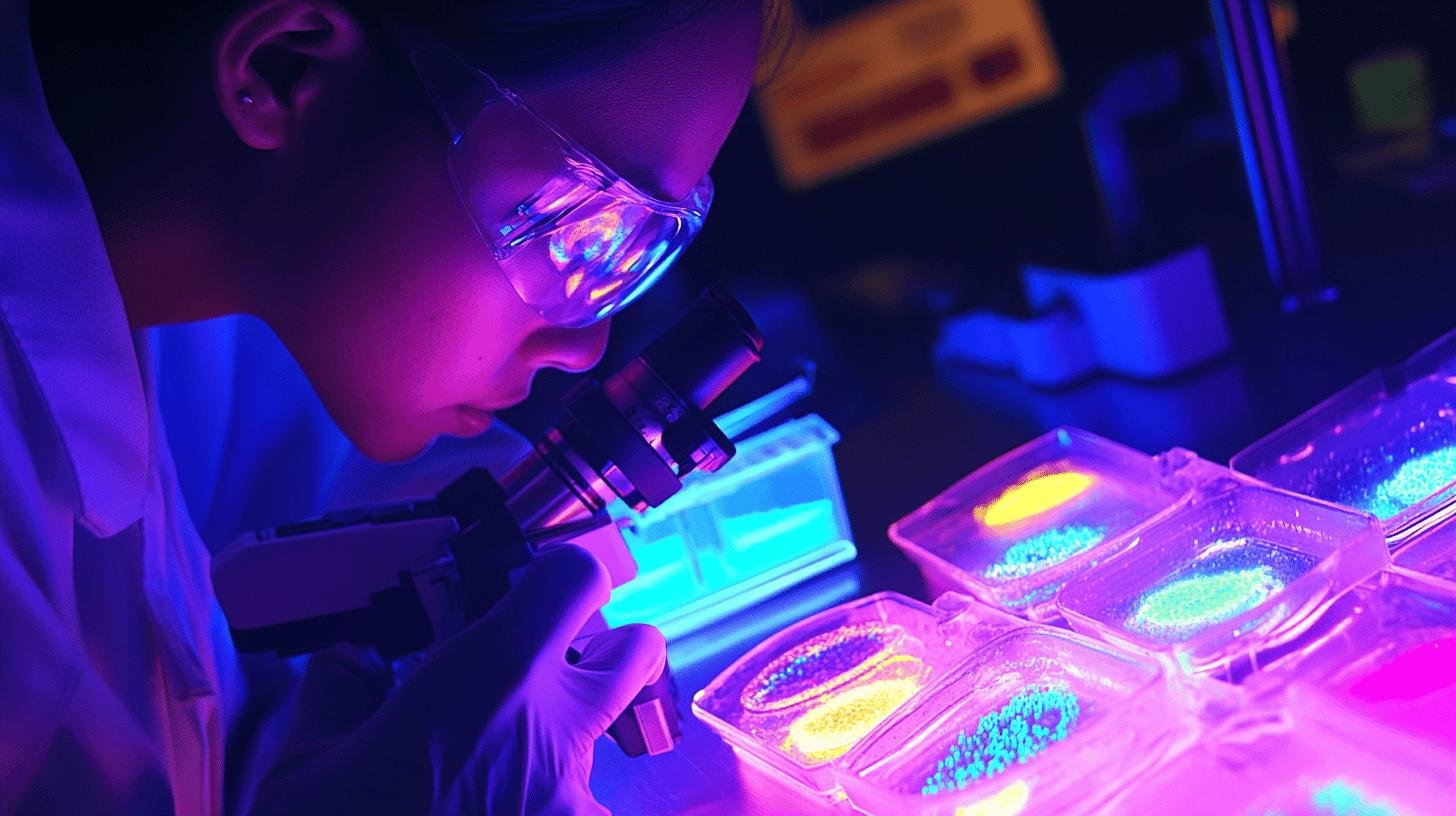TL;DR:
- Autoimmune diseases occur when the body attacks its own cells; links to endometriosis may exist but remain unclear.
- Endometriosis affects ~10% of women, causing pelvic pain, painful periods, infertility, and bowel issues.
- Autoimmune diseases potentially linked to endometriosis include:
- Systemic Lupus Erythematosus (SLE)
- Sjögren’s Syndrome (SS)
- Rheumatoid Arthritis (RA)
- Autoimmune Thyroid Disorders (ATD)
- Treatments for endometriosis include pain relievers, hormonal therapy, surgery, dietary changes, and stress management techniques like yoga.
- Direct primary care offers personalized treatment plans and improved doctor-patient relationships without insurance complications.
When you think about endometriosis, do autoimmune diseases ever come to mind? It’s surprising, right? Women with endometriosis may face more than just pain and infertility—their immune systems could be playing tricks on them. Imagine your body picking a fight with itself, and you’re left dealing with the fallout. This blog dives into the surprising connections bwtween autoimmune diseases and endometriosis. By understanding these links, we can uncover new ways to manage symptoms and improve health outcomes. Ready to explore this fascinating topic with me? Let’s go!
Understanding Autoimmune Diseases and Endometriosis
Autoimmune diseases occur when the body’s defense system mistakenly attacks its own cells instead of protecting you from threats like viruses. This can cause various health issues, depending on the body part targeted. But how does this relate to endometriosis? Research shows possible links between immune system malfunctions and endometriosis, although the connection remains unclear.
Endometriosis happens when tissue similar to the lining of the uterus grows outside the uterus. This can cause symptoms such as pain, bowel problems, and infertility, and affects about 10% of women in their reproductive years. Its causes might include genetic and environmental factors, plus the immune system’s failure to eliminate these misplaced cells, suggesting a connection to immune-related diseases.
Common symptoms of endometriosis include:
- Pelvic pain
- Painful periods
- Pain during intercourse
- Bowel issues
- Infertility
Exploring the Link: Autoimmune Diseases and Endometriosis

What’s happening with the immune system and endometriosis? Imagine the immune system as a cleanup crew removing anything that doesn’t belong, like endometrial cells outside the uterus. However, sometimes this crew doesn’t perform well, allowing these cells to stay where they shouldn’t. This dysfunction hints that endometriosis might be more than a reproductive issue and could involve immune system problems.
You’ve probably heard about “inflammation.” It’s the body’s response when fighting something like a cold. In endometriosis, this reaction can go overboard. Instead of a brief flare-up, it becomes a prolonged conflict, potentially explaining why endometriosis is often linked to autoimmune conditions, where the body’s defenses are consistently heightened.
So, what’s the latest from the research? Current studies are exploring these links. While we’ve not reached firm conclusions, there’s a growing suspicion. Women with endometriosis may have a higher risk of autoimmune diseases, hinting at these conditions being interconnected, like uninvited party guests. Researchers are still closely examining these mysteries.
| Autoimmune Disease | Potential Link to Endometriosis |
|—————————————|—————————————|
| Systemic Lupus Erythematosus (SLE) | Positive association suggested |
| Sjögren’s Syndrome (SS) | Possible connection noted |
| Rheumatoid Arthritis (RA) | Indications of increased risk |
| Autoimmune Thyroid Disorders (ATD) | Suggested potential link |
| Coeliac Disease (CLD) | Possible association explored |
Common Autoimmune Diseases Linked to Endometriosis
Wonder why some diseases seem to team up? That’s how it is with autoimmune diseases and endometriosis. These conditions co-occur because both involve immune system irregularities. Endometriosis may signal broader immune challenges beyond the reproductive system.
Systemic Lupus Erythematosus (SLE) and Sjögren’s Syndrome (SS) are two autoimmune disorders often found alongside endometriosis. SLE involves the body attacking its tissues, causing symptoms like fatigue and joint pain. Research suggests women with endometriosis may be more prone to SLE. Sjögren’s Syndrome affects moisture-producing glands, causing dry eyes and mouth, and may also occur more in those with endometriosis.
Rheumatoid Arthritis (RA) and Autoimmune Thyroid Disorders (ATD) also show potential links. RA is known for joint pain and swelling, seemingly more common in women with endometriosis. ATD, such as Hashimoto’s thyroiditis, involves the body attacking the thyroid gland. Inflammation ties these autoimmune conditions to those dealing with endometriosis.
Prominent linked diseases include:
- Systemic Lupus Erythematosus (SLE)
- Sjögren’s Syndrome (SS)
- Rheumatoid Arthritis (RA)
- Autoimmune Thyroid Disorders (ATD)
Managing Symptoms and Complications in Endometriosis

Want to address endometriosis symptoms directly? Start with tried-and-true treatments. Pain relievers can ease discomfort, while hormonal therapies aim to suppress menstruation, reducing pain. Surgery, such as laparoscopic procedures, helps eliminate or lessen endometrial growths and is a go-to for symptom management.
Lifestyle adjustments can also make a big impact. Diet changes, like eating fewer processed foods and more fruits and vegetables, can reduce inflammation. Managing stress is crucial, as it affects the body significantly. Techniques like yoga and mindfulness can control stress and relieve symptoms.
Have you thought about integrative methods? They’re like the cherry on top of your treatment plan. Behavioral therapy helps manage the emotional aspects of endometriosis. Complementary therapies such as acupuncture or massage are gaining traction for pain relief. Although not quick fixes, they’re valuable additions for comprehensive management.
Supportive approaches include:
- Heat therapy (heating pads)
- Regular exercise
- Dietary changes (anti-inflammatory diet)
- Stress reduction techniques (yoga, meditation)
- Acupuncture
The Role of Direct Primary Care in Managing Endometriosis
What is direct primary care? Think of it as having a personal health coach. Patients pay a regular fee directly to their doctor, bypassing insurance. This provides more time with the doctor, fewer crowded waiting rooms, and a personalized medicine focus. It’s about building a relationship with your healthcare provider to truly understand your health.
For someone with endometriosis, direct primary care means creating a tailored health plan. Endometriosis symptoms vary significantly, so having a doctor who knows your situation is vital. This model also enhances healthcare access by removing insurance restrictions, making it an excellent way to manage tricky symptoms.
Benefits of direct primary care include:
- More time with your doctor for personalized care
- Improved access to healthcare services
- No insurance hassles, just straightforward care
- Custom treatment plans tailored to individual needs
Final Words
Diving into the world of autoimmune diseases linked to endometriosis, we explored the fascinating connection between the immune system and this common condition. Endometriosis causes a range of symptoms, potentially linked to immune abnormalities. This likely overlaps with diseases like lupus and rheumatoid arthritis.
Understanding these links shines a light on symptom management. It opens doors for effective treatment options, from lifestyle tweaks to direct primary care. This personalized approach helps ensure better care and easier access.
Keep these insights in mind as you navigate your healthcare journey—they’ll make a world of difference!
FAQ
Q: Is endometriosis an autoimmune disease?
A: Endometriosis is not classified as an autoimmune disease. It’s an inflammatory condition where tissue similar to the uterus lining grows outside it, potentially influenced by the immune system.
Q: What diseases are associated with endometriosis?
A: Diseases linked to endometriosis include systemic lupus erythematosus, Sjögren’s syndrome, rheumatoid arthritis, autoimmune thyroid disorders, and coeliac disease.
Q: Is the immune system linked to endometriosis?
A: Yes, immune system abnormalities might play a crucial role in endometriosis, failing to clear unwanted tissue, thereby contributing to its development.
Q: Is there a connection between endometriosis and lupus?
A: There is a suggested link between endometriosis and lupus (systemic lupus erythematosus), with some women experiencing both conditions.
Q: What autoimmune diseases cluster together?
A: Autoimmune diseases often clustering together include lupus, rheumatoid arthritis, Sjögren’s syndrome, autoimmune thyroid disorders, and coeliac disease. These may have shared immune or genetic factors.
Q: Is endometriosis a chronic illness?
A: Yes, endometriosis is considered a chronic illness as it often involves long-term symptoms like pain and infertility, with no definitive cure.
Q: Is endometriosis an inflammatory disease?
A: Absolutely, endometriosis is characterized by inflammation due to tissues growing outside the uterus, causing pain and other symptoms.
Q: What are common symptoms of endometriosis?
A: Common symptoms include pelvic pain, painful periods, pain during intercourse, heavy menstrual bleeding, and infertility.

